This website is intended for residents of New Zealand
MENINGOCOCCAL DISEASE CAN TURN UP IN TEENS AND YOUNG ADULTS. BUT WHY SHOULD I EVEN CARE?
Meningococcal disease can develop when certain bacteria usually found in the nose and throat gate crashes the body, resulting in serious illness.1 It spreads through very close contact between people (e.g. intimate kissing or living in the same household).2
Most people will recover from meningococcal disease if it’s detected early.1,3 The infection is treated with antibiotics (usually in hospital), with some people requiring treatment in intensive care.2,4 Antibiotics may be given to close contacts of people with meningococcal disease to prevent them from also being infected.2 Despite this, up to 10-15% of people with meningococcal disease develop permanent disabilities,6 including loss of arms, legs, fingers and/or toes, deafness, blindness, scars and kidney or liver failure.6,7 And here’s where it gets really serious - despite early detection and treatment, up to 1 in 10 people with meningococcal disease will die as a result of the infection.6
The good news is, meningococcal disease can be prevented with vaccination.1,8 There are different vaccines available to protect against the most common types of meningococcal disease (A, B, C, W, and Y). Teens and young adults aged 13-25 years can get the free combination vaccine for meningococcal disease types A, C, W and Y (Meningococcal ACWY) if they are entering within three months or are in their first year of living in boarding school hostels, tertiary education halls of residence, military barracks, or prisons.1,8 This vaccine covers four of the five most common strains of meningococcal disease, however, the vaccine does not protect against meningococcal disease caused by type B.1,8 A separate vaccine is available for type B meningococcal disease. For more information, speak to your doctor.
Teens and young adults aged 13–25 years who are not living in a close-living situation will need to pay the full cost of the vaccine.1,8 Those with certain high-risk medical conditions may also be eligible for a free ACWY or B meningococcal vaccine.1,8
Those with certain high-risk medical conditions may also be eligible for a free ACWY or B meningococcal vaccine.1,8 For more information, speak to your doctor.
You can also take additional preventative measures to reduce your risk of transmitting and contracting meningococcal disease which include:1
- Covering your mouth when sneezing or coughing
- Washing and drying your hands
- Avoid sharing eating or drinking utensils as well as toothbrushes
For more information on recommendations and funding of meningococcal vaccines, speak to your healthcare professional or visit https://www.health.govt.nz/your-health/conditions-and-treatments/diseases-and-illnesses/meningococcal-disease-including-meningitis
WHAT ARE THE SYMPTOMS?
- Symptoms progress quickly (within hours) and are often misdiagnosed since early symptoms often resemble those of other infections like the flu.1,2
- There are a range of symptoms which vary according to severity and age. Babies and young children can experience different symptoms to older children and adults.2
- Symptoms requiring urgent medical attention include rash of red or purple pinprick spots or larger bruise-like areas, fever, headache, neck stiffness, discomfort when looking at bright light, nausea or vomiting, diarrhoea, and feeling very sick.1,2
- Other symptoms include loss of appetite, irritability or fretfulness, confusion, drowsiness, extreme tiredness, aching or sore muscles, painful or swollen joints, difficulty walking, and maybe collapsing, grunting or moaning, difficulty talking, having fits.4
Meningococcal disease in teens and young adults
Although meningococcal disease can affect people of all ages, young children and people aged 13–25 years have an increased risk of being infected and spreading it to others.2,6,7 Adolescents and young adults have highest carriage of bacteria in their nose and throat1,4,6. Between 10-20% of people carrying bacteria in their nose and throat are without signs of illness or symptoms1,4,6. The disease can spread through very close contact between people (e.g. intimate kissing and mingling at music festivals)1,2 – that long make-out sesh could be giving you much more than you think!
With this kind of close contact, it’s no surprise that there’s a high rate of transmission of meningococcal disease in teenagers compared to other age groups.10
Fortunately, vaccines are available to help protect both you and others from developing this life-threatening infection.8 The meningococcal ACWY vaccine, as well as the B type vaccine, are both available and protect against different strains of meningococcal disease.8If you are aged 13–25 years old and entering, or in your first year of living in a boarding school hostel or tertiary education hall of residence, you can get the meningococcal ACWY vaccine for free from your doctor.1,8 A separate non-funded vaccine is available for type B meningococcal disease. For more information about both vaccines, speak to your doctor.
Alternatively, if you are 13–25 years of age and not eligible for a free vaccine, you can pay for the full cost of a meningococcal vaccine.1,8
FAQs
Social behaviours in adolescents and young adults are believed to be largely responsible for a higher risk of meningococcal disease.10 They can unknowingly carry and transmit the bacteria through the exchange of respiratory secretions during close contact, such as kissing or coughing on someone.10 Other social behaviours that can increase the risk of transmission include dormitory or military barrack inhabitation, attending music festivals, and smoking.10
With any vaccine, there is a very small risk of a serious allergic reaction (anaphylaxis). This waiting time is a precaution in case further treatment is required following the vaccination.1,11
Some common side effects include pain/swelling/redness at the injection site, fever, chills, headaches, rash, nausea, and loss of appetite. However, these usually resolve within 48-72 hours.1,7,8
If you experience any side effects or have any concerns following the vaccination, please see your doctor for advice. 1,7,8 Serious side effects from the vaccine are extremely rare. 1,7,8
Vaccination is the best protection against meningococcal disease – even if you have had meningococcal disease before.7,8 This is because immunity does not necessarily last forever.
There are different types of vaccines for the different strains of meningococcal disease.7,8 Vaccination against one strain does not provide protection against other strains.7,8
You should speak to your healthcare professional about which vaccinations are appropriate for you.
There are different types of vaccines for the different strains of meningococcal disease.1,8 The vaccination given helps protect against the A, C, W and Y strains.8 It does not protect against the B strain.8
You should speak with your healthcare professional about which vaccinations are appropriate for you.

Meningococcal disease in teens and young adults
Although meningococcal disease can affect people of all ages, young children and people aged 13–25 years have an increased risk of being infected and spreading it to others.2,6,7 Adolescents and young adults have highest carriage of bacteria in their nose and throat1,4,6. Between 10-20% of people carrying bacteria in their nose and throat are without signs of illness or symptoms1,4,6. The disease can spread through very close contact between people (e.g. intimate kissing and mingling at music festivals)1,2 – that long make-out sesh could be giving you much more than you think!
With this kind of close contact, it’s no surprise that there’s a high rate of transmission of meningococcal disease in teenagers compared to other age groups.10
Fortunately, vaccines are available to help protect both you and others from developing this life-threatening infection.8 The meningococcal ACWY vaccine, as well as the B type vaccine, are both available and protect against different strains of meningococcal disease.8If you are aged 13–25 years old and entering, or in your first year of living in a boarding school hostel or tertiary education hall of residence, you can get the meningococcal ACWY vaccine for free from your doctor.1,8 A separate non-funded vaccine is available for type B meningococcal disease. For more information about both vaccines, speak to your doctor.
Alternatively, if you are 13–25 years of age and not eligible for a free vaccine, you can pay for the full cost of a meningococcal vaccine.1,8
FAQs
Social behaviours in adolescents and young adults are believed to be largely responsible for a higher risk of meningococcal disease.10 They can unknowingly carry and transmit the bacteria through the exchange of respiratory secretions during close contact, such as kissing or coughing on someone.10 Other social behaviours that can increase the risk of transmission include dormitory or military barrack inhabitation, attending music festivals, and smoking.10
With any vaccine, there is a very small risk of a serious allergic reaction (anaphylaxis). This waiting time is a precaution in case further treatment is required following the vaccination.1,11
Some common side effects include pain/swelling/redness at the injection site, fever, chills, headaches, rash, nausea, and loss of appetite. However, these usually resolve within 48-72 hours.1,7,8
If you experience any side effects or have any concerns following the vaccination, please see your doctor for advice. 1,7,8 Serious side effects from the vaccine are extremely rare. 1,7,8
Vaccination is the best protection against meningococcal disease – even if you have had meningococcal disease before.7,8 This is because immunity does not necessarily last forever.
There are different types of vaccines for the different strains of meningococcal disease.7,8 Vaccination against one strain does not provide protection against other strains.7,8
You should speak to your healthcare professional about which vaccinations are appropriate for you.
There are different types of vaccines for the different strains of meningococcal disease.1,8 The vaccination given helps protect against the A, C, W and Y strains.8 It does not protect against the B strain.8
You should speak with your healthcare professional about which vaccinations are appropriate for you.
-
Meningococcal disease (including meningitis). New Zealand Government – Ministry of Health; [accessed 2021 Dec 8]. https://www.health.govt.nz/your-health/conditions-and-treatments/diseases-and-illnesses/meningococcal-disease-including-meningitis
-
Meningococcal Disease. Health Navigator New Zealand. [accessed 2021 Dec 8]. https://www.healthnavigator.org.nz/health-a-z/m/meningococcal-disease
-
Meningococcal ACWY Vaccine for Teens. Australian Government – Department of Health; [accessed 2021 Dec 8]. https://www.health.gov.au/campaigns/meningococcal-acwy-vaccine-for-teens.
-
Meningococcal Disease. Australian Government – Department of Health; [accessed 2021 Dec 8]. https://www.health.gov.au/health-topics/meningococcal-disease#what-is-meningococcal-disease.
-
Meningococcal Disease Death in a Young Adult. 2020. Government of Western Australia – Department of Health; [accessed 2021 Dec 8]. https://ww2.health.wa.gov.au/Media-releases/2020/Meningococcal-disease-death-in-a-young-adult-case-2.
-
Meningococcal disease. Immunisation Advisory Centre [accessed 2021 Dec 8]. https://www.immune.org.nz/diseases/meningococcal-disease
-
Immunise against meningococcal disease. Health Ed. [accessed 2021 Dec 8]. https://www.healthed.govt.nz/resource/immunise-against-meningococcal-disease
-
Meningococcal vaccine. Health Navigator New Zealand. [accessed 2021 Dec 8]. https://www.healthnavigator.org.nz/medicines/m/meningococcal-vaccine/
-
Teenagers Often Silent Carriers of Meningococcal Disease, Expert Says. 2018. newsGP; [accessed 2021 Dec 8].
-
Burman C, Serra L, Nuttens C. 2019. Meningococcal disease in adolescents and young adults: a review of the rationale for prevention through vaccination. Human Vaccines & Immunotherapeutics. 15(2):459-469.
-
Meningococcal Disease – Immunisation. 2020. State Government of Victoria – Department of Health and Human Services; [accessed 2021 Dec 8]. https://www.betterhealth.vic.gov.au/health/healthyliving/meningococcal-disease-immunisation.





